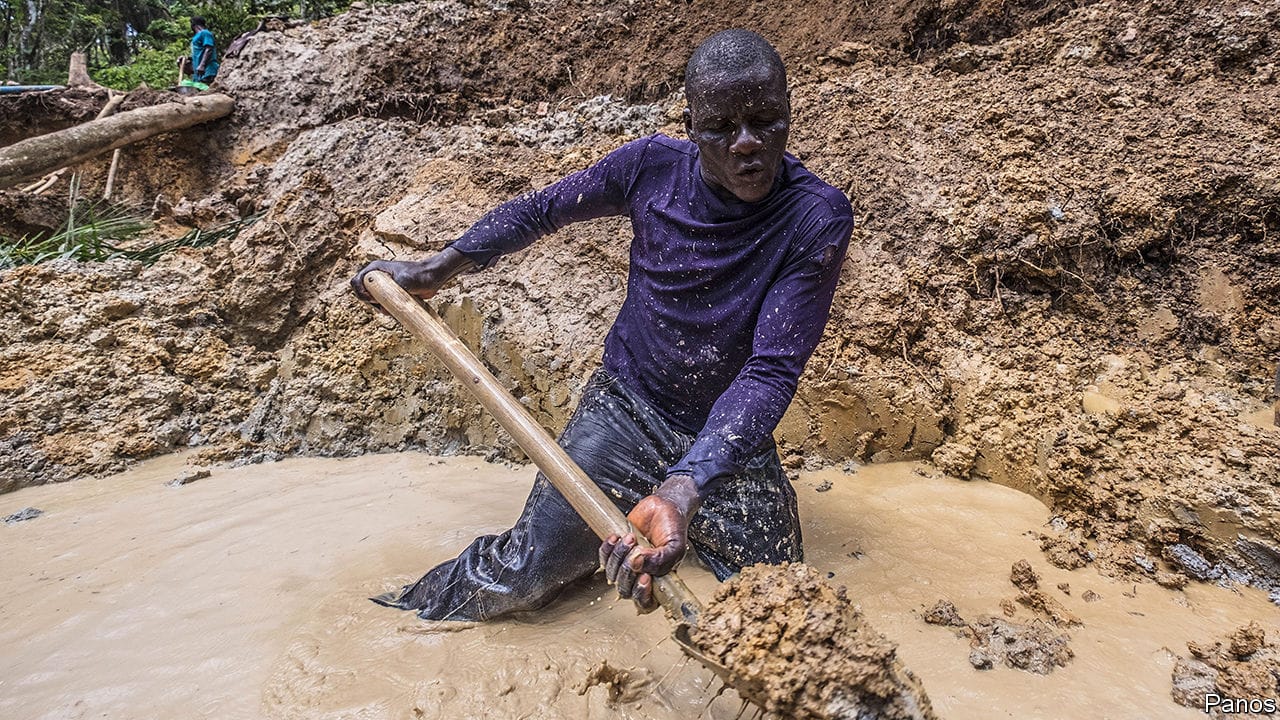- by MAJDAL SHAMS
- 07 28, 2024
-

-
-
Loading

Loading


IN EASTERN SIERRA LEONEUNFDI six shoeless men thwack shovels into a bank of reddish earth and heave the dirt into a stagnant pond. They hope to find diamonds. Even if they do, they will not strike it rich. The men are paid about $0.90 a day by a backer who bought the licence to mine and who keeps 70% of anything they find. The remainder adds up, on average, to about $135 a year each, says one. Ibrahim, a 25-year-old wearing a sodden sock to protect his foot from the metal shovel, is a third-generation miner. He does not earn enough to send his children to school. “If I cannot support my children to be educated, how can I be sure they will not come here, too?” he asks.Like Ibrahim’s family, many African economies have relied too much on raw materials for too long. The defines a country as dependent on commodities if they are more than three-fifths of its physical exports. Fully 83% of African countries meet that threshold, up from 77% a decade ago. Some depend on produce such as tea, but most rely on mining or on pumping oil. When commodities crashed in 2015, foreign direct investment () and growth tumbled and have yet to fully recover.